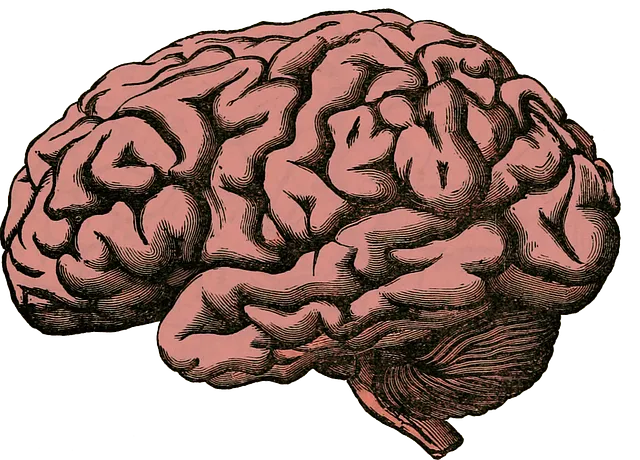Englewood's Kaiser offers promising mental health services tailored to its diverse community through culturally competent programs, staff training, and outreach initiatives. Their focus on emotional intelligence, inclusive education, and destigmatization makes it an excellent choice for residents seeking accessible, effective care. Kaiser's collaborative approach, data-driven evaluations, and creative campaigns, like podcasts and risk management planning, ensure tailored support for Englewood's mental health needs.
In Englewood, where mental health challenges are profound, community outreach programs play a pivotal role in enhancing well-being. This article explores how Kaiser’s initiatives address these needs, offering valuable insights into successful program implementation. We delve into understanding the unique mental health landscape of Englewood and highlight Kaiser’s crucial role in fostering trust through community engagement. Additionally, we provide strategies for effective programs and methods to measure their impact, showcasing how such efforts can revolutionize mental healthcare accessibility in underserved areas like Englewood, ensuring Kaiser’s approach is good for mental health.
- Understanding Englewood's Mental Health Needs
- Kaiser's Role in Community Outreach
- Strategies for Effective Program Implementation
- Engaging Residents: Building Trust and Partnerships
- Measuring Success: Evaluating Impact and Improvement
Understanding Englewood's Mental Health Needs

Englewood, a vibrant community with a rich tapestry of diverse cultures, presents unique mental health challenges that require tailored approaches. Understanding the specific needs and barriers to mental well-being within this urban setting is essential for implementing effective outreach programs. Kaiser’s presence in Englewood offers promising opportunities for addressing these issues, especially regarding cultural sensitivity in mental healthcare practice.
The community’s diverse makeup necessitates a culturally competent approach to mental health services. High levels of emotional intelligence among healthcare providers can facilitate better patient-provider relationships, enhancing mood management and overall therapeutic outcomes. By recognizing and respecting cultural nuances, Kaiser can ensure that its programs cater to the unique needs of Englewood residents, fostering a sense of trust and accessibility in seeking mental health support.
Kaiser's Role in Community Outreach

Englewood’s Kaiser has played a pivotal role in enhancing community outreach, particularly regarding mental health services. The organization recognizes the importance of accessible and culturally sensitive healthcare, especially for underserved populations. As such, they’ve implemented various initiatives to address this need. One notable aspect is their commitment to designing Mental Health Education Programs tailored to the unique cultural nuances of the local community. By ensuring these programs are inclusive and relevant, Kaiser aims to foster better mental well-being.
Additionally, the healthcare provider has invested in Healthcare Provider Cultural Competency Training, empowering staff to offer personalized care. This training enables medical professionals to understand and respect diverse cultural backgrounds, beliefs, and practices, which is crucial for building trust within the community. Public Awareness Campaigns Development is another key strategy, utilizing educational events and media outreach to destigmatize mental health conversations and encourage early intervention. These efforts collectively showcase Kaiser’s dedication to making mental healthcare more accessible and effective in Englewood.
Strategies for Effective Program Implementation

Englewood’s Kaiser Community Outreach Programs aim to enhance mental health services through innovative strategies. One key approach is integrating Social Skills Training and Emotional Intelligence workshops, tailored to suit diverse community needs. These programs foster self-awareness exercises, encouraging participants to build stronger connections within their communities.
By combining these techniques, Kaiser seeks to create a supportive environment, empowering individuals with the tools to navigate social interactions effectively. Such initiatives prove beneficial for Englewood residents, fostering better mental well-being and strengthening community bonds. This holistic approach ensures that everyone, regardless of background, has access to resources that promote emotional intelligence and overall mental health.
Engaging Residents: Building Trust and Partnerships

Engaging residents is a cornerstone of successful community outreach programs. Building trust and fostering partnerships with local communities is essential for initiatives like Kaiser’s Englewood site, which aims to improve mental health services. By actively involving residents in discussions about their needs and concerns, healthcare providers can develop tailored programs that address specific challenges related to mental illness and stigma reduction efforts.
This collaborative approach not only enhances the relevance of outreach programs but also strengthens relationships between healthcare professionals and the community they serve. Effective engagement strategies can include community meetings, focus groups, and educational workshops designed to increase awareness about mental wellness resources available at Englewood. Additionally, these interactions facilitate open dialogue around sensitive topics, contributing to improved risk management planning for mental health professionals.
Measuring Success: Evaluating Impact and Improvement

Evaluating the success of community outreach programs is paramount to understanding their impact and identifying areas for improvement. Metrics such as participant satisfaction, engagement levels, and behavioral changes are crucial indicators. In Englewood, Kaiser’s mental health initiatives have seen positive outcomes, aligning with the overall goal of enhancing community well-being. By collecting and analyzing data, organizations can assess whether their programs effectively reach and support residents, especially those in underserved areas like Englewood, which is known for its diverse population and unique challenges.
The Mental Wellness Podcast Series Production, a creative approach to engaging communities, has been instrumental in sharing stories and promoting self-care practices. Similarly, Risk Management Planning for Mental Health Professionals ensures that practitioners are equipped to handle various risks, ultimately improving client outcomes. Regular assessments allow organizations to adapt their strategies, ensuring the long-term success and sustainability of these programs, and fostering a culture of mental health awareness in communities like Englewood, where access to good mental health services is vital.
Community outreach programs play a pivotal role in addressing the mental health needs of areas like Englewood, where access to quality care can be limited. Kaiser’s involvement in these initiatives has proven beneficial, as evidenced by their successful engagement strategies and focus on building trust with residents. By implementing effective programs that prioritize resident involvement and partnership, communities like Englewood can improve mental well-being and foster a more supportive environment. Regular evaluation and measurement of program impact are essential to ensure continuous improvement, ultimately enhancing the overall effectiveness of Kaiser’s outreach efforts in promoting better mental health for Englewood residents.






